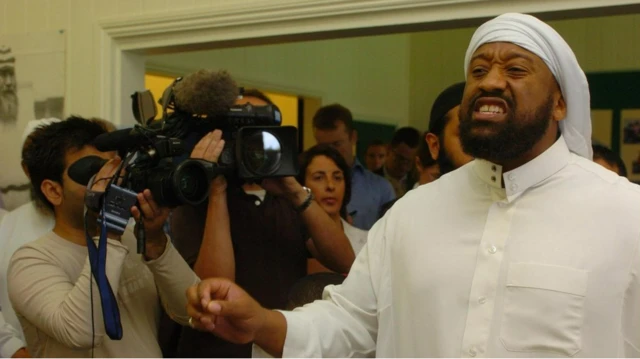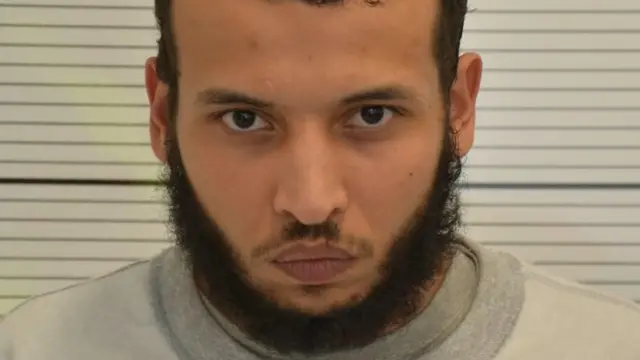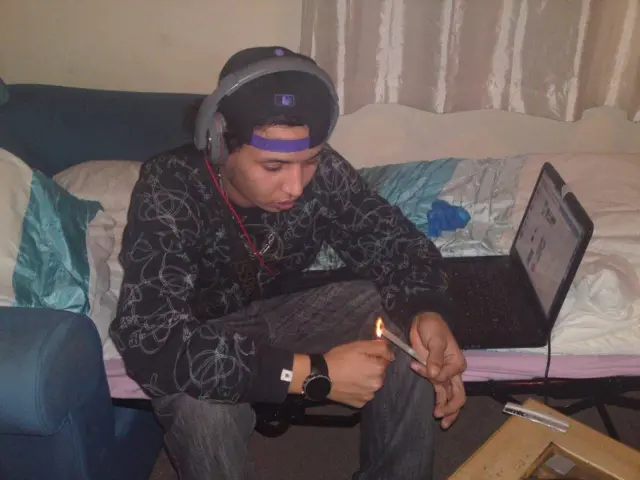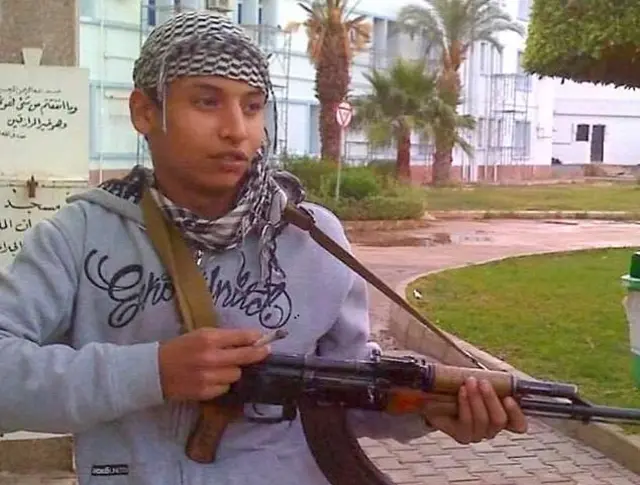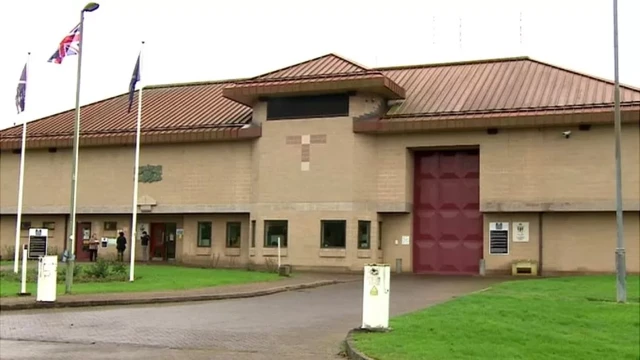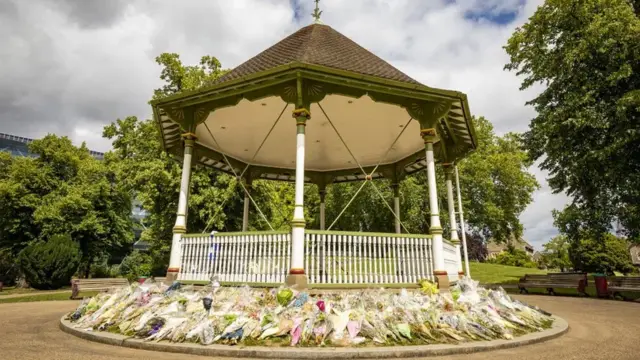Park attack was 'ruthless and lethal', trial heardpublished at 16:15 BST 26 April 2024
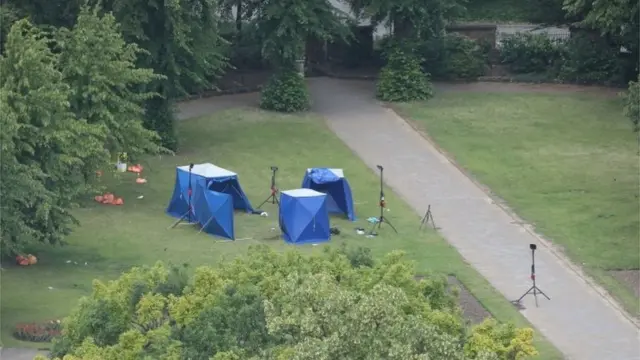 Image source, PA Media
Image source, PA MediaForbury Gardens had been busy on the day of the attack due to lockdown restrictions being relaxed
During his murder trial, prosecutors described Saadallah’s attack as "ruthless and lethal".
At around 18:45 BST witnesses saw a lone knifeman target a group of people in Forbury Gardens near Reading town centre.
Friends James Furlong, 36, Dr David Wails, 49, and Joseph Ritchie-Bennett, 39, were fatally stabbed.
Three others - Stephen Young, Patrick Edwards and Nishit Nisudan - were also injured.
Saadallah shouted "Allahu Akbar [God is greatest]" as he attacked and again as he ran away, throwing away the 8in (20cm) knife as he was pursued by an off-duty police officer.
At 18:56 the first emergency call was made to Thames Valley Police.
Chief Constable John Campbell said officers arrested a man within five minutes of the call.

